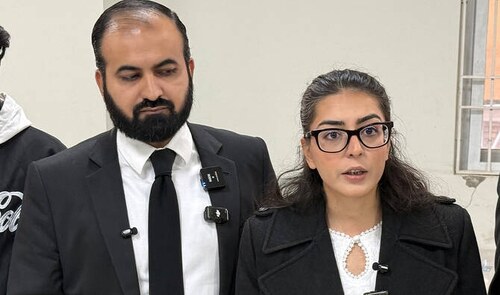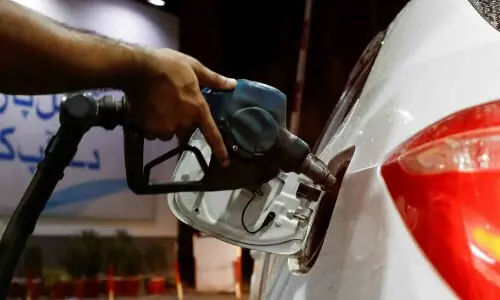ISLAMABAD: A forensic audit report on the bottled water business of Nestle Pakistan Ltd submitted before a Supreme Court bench on Tuesday termed the margins of distributors and retailers ‘very high’ and ‘unjustified’ as compared to the private company’s profit.
The three-judge bench was informed that the company earned a net profit of Rs739.5 million in 2017, while the distributors and retailers got 276 per cent net profit, to the tune of Rs2 billion, the same year.
The SC bench, headed by Chief Justice Mian Saqib Nisar, however, regretted that the bottled water companies were selling water after extracting it from the ground almost for free and summoned the owners of all mineral water companies to appear in person before the court on Nov 13 when the case will be taken up again.
SC summons owners of all mineral water companies on Nov 13
At the last hearing, the court had ordered the auditor general to form a team to conduct forensic audit of the bottled water business of Nestle Pakistan to determine the real profit earned by the company.
The audit report showed that the company had virtually paid no amount to any government department for the 4.43 billion litres of water extracted between 2013 and 2017.
According to the report, the total water extraction during the past five years from all wells at the three sites, except beverages segment, was 4.433 billion litres of which the water processed and sold in bottles was 2.5 billion litres.
The figures showed that 1.9 billion of the total 4.4 billion litres of water were wasted, indicating a 43 per cent loss.
While the Nestle Pakistan management said that 15 per cent water was wasted during the Reverse Osmosis (RO) process in water treatment, it could not justify the rest of 28 per cent wastage of water.
The report highlighted that Pakistan was one of the most water-stressed countries in the world and due to the ill-planning and callous attitude of the successive governments, water resources were rapidly depleting.
The crisis was affecting every segment of society, it stated, adding that the per capita availability of water had dropped from 5,000 cubic metres per annum in 1951 to about 1,000 cubic metres in 2014. The share deteriorated further in the following years.
The bottled water business in Pakistan is being dominated by three international companies — Nestle Pakistan Ltd, Pepsi Co Inc. and Coca Cola Beverages Pakistan Ltd — with Nestle having the largest share of 36.30pc. There are a number of other big and small companies also doing bottled water business.
Nestle Pakistan established three processing plants for treatment of water extracted from a total of nine wells at three sites of Islamabad, Port Qasim and Sheikhupura.
The report also highlighted legal inadequacies in regulating the bottled water business in the country and its impact on the respective aquifer.
During the proceedings, the court was informed that the plastic bottles being used by the mineral water companies did not meet health safety standards.
The chief justice also recalled his visit to the Nestle site in Karachi, where the company was given land on lease without any charge. He said a sample of Nestle water was not found up to the standard considered to be fit for human consumption.
Claiming that he had quit drinking bottled water, the chief justice appealed to the nation to revive the forgotten tradition of using pitchers for drinking water.
He observed that bottled water exposed to sunshine for hours became unsuitable for human consumption.
Published in Dawn, October 31st, 2018






























